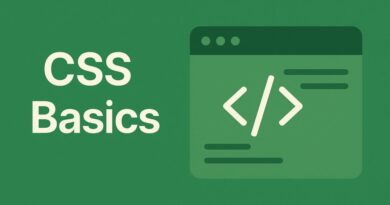PHP Functions:- Variable scope (global, local, static)
Where Does Your PHP Variable Live? Understanding Global, Local, and Static Scope
Ever written some PHP code and wondered why a variable you defined in one place isn’t accessible in another? Or perhaps you’ve seen the words “global,” “local,” and “static” floating around and felt a little confused. Don’t worry, you’re not alone! Today, we’re going to demystify variable scope in PHP and make it super easy to understand.
Think of variable scope like different neighborhoods in a city. Just as you might find different shops and people in different neighborhoods, PHP variables have specific “neighborhoods” where they can be seen and used.
Let’s break down the three main types:
1. The “Local” Neighborhood: Inside Your Functions
Imagine you’re having a private conversation with a friend inside a coffee shop. What you discuss there stays mostly within that coffee shop, right?
In PHP, when you create a variable inside a function, it lives in the “local” neighborhood of that function. This means:
- It’s only accessible within that specific function. Once the function finishes running, that variable is gone.
- Other functions or code outside don’t know it exists. You can even have variables with the same name in different functions, and they won’t clash because they’re in their own separate “local” spaces.
Example:
PHP
<?php
function greetUser() {
$name = "Alice"; // This is a local variable
echo "Hello, " . $name . "!";
}
greetUser(); // Outputs: Hello, Alice!
// echo $name; // This would cause an error! $name doesn't exist out here.
?>
2. The “Global” City: Accessible Everywhere (But with Caution!)
Now, imagine a famous landmark in the city, like a big clock tower. Everyone in the city can see it and knows about it, no matter which neighborhood they’re in.
In PHP, a “global” variable is defined outside of any function. It’s theoretically accessible from anywhere in your script. However, there’s a catch when you want to use it inside a function:
- To use a global variable inside a function, you need to explicitly tell PHP you’re referring to the global one. You do this using the
globalkeyword or the$GLOBALSsuperglobal array. - Why the extra step? This is a safety measure! It prevents accidental changes to important global variables from within functions, which can make your code harder to debug.
Example:
PHP
<?php
$city = "New York"; // This is a global variable
function showCity() {
global $city; // We're specifically saying "use the global $city"
echo "The city is: " . $city;
}
showCity(); // Outputs: The city is: New York
// You can also use $GLOBALS
function showCityAgain() {
echo "The city (again) is: " . $GLOBALS['city'];
}
showCityAgain(); // Outputs: The city (again) is: New York
?>
A Word of Caution on Globals: While they seem convenient, overusing global variables can lead to “spaghetti code” – code that’s messy, difficult to follow, and prone to bugs. It’s generally better practice to pass values into functions as arguments if they’re needed.
3. The “Static” Shop: A Local with a Memory
Let’s go back to our coffee shop. Imagine a special coffee machine inside the shop. Every time you visit the shop, the machine is still there, and it remembers how many cups of coffee it has made since the last person used it. It’s local to the shop, but it persists.
“Static” variables in PHP are fascinating. They are declared inside a function, just like local variables, but with one key difference:
- They retain their value even after the function finishes executing. The next time the function is called, the static variable will have the value it had from the previous call.
- They are still local to that function. No other part of your script can access them directly.
Example:
PHP
<?php
function countVisitors() {
static $visits = 0; // This is a static variable, initialized only once
$visits++;
echo "This function has been called " . $visits . " time(s).<br>";
}
countVisitors(); // Outputs: This function has been called 1 time(s).
countVisitors(); // Outputs: This function has been called 2 time(s).
countVisitors(); // Outputs: This function has been called 3 time(s).
?>
Notice how $visits keeps increasing each time countVisitors() is called. If $visits were a regular local variable, it would reset to 0 every single time the function ran.
Why Does Variable Scope Matter?
Understanding variable scope is crucial for writing clean, efficient, and bug-free PHP code.
- Prevents Conflicts: It helps you avoid accidentally overwriting variables or using the wrong data.
- Improves Readability: Knowing where a variable is defined and can be used makes your code easier for others (and your future self!) to understand.
- Encourages Good Practices: It nudges you towards writing more modular and maintainable code.
So, the next time you’re defining a variable in PHP, take a moment to consider its “neighborhood” – will it be local, global, or static? Choosing the right scope will make your coding journey much smoother!




